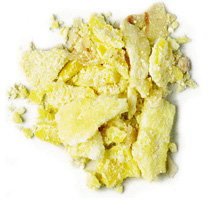
Beer adjuncts are the unmalted grains, sugars, solids or syrups that are used in the brewing process to supplement the main mash. There is a technical definition, and a “common use” definition of this term.
The technical definition would not include sugars and syrups since they are not added during the mash and do not require the malt’s enzymes to convert starch to sugar.
But the “common use” definition includes things such as common table sugar, honey, molasses, Belgian Candi Sugar, (MoreBeer) etc. In fact, the Reinheitsgebot purity laws of Germany would consider any ingredient other than water, yeast, barley or hops as being an adjunct.
Complementary ingredients are added to beer for various reasons. The primary reason is to make an acceptable beer with the cheapest ingredients. A brewer can add sugar to increase the alcohol content, dry out the beer, and impart various flavors as he sees fit.
Many adjuncts are unmalted grains, (purchase these at MoreBeer) such as corn, rice, rye, oats, barley and wheat. These unmalted grains supplement the mash ingredients to either cut costs or create a specific flavor or effect in the finished beer.
Rice for example, will supply fermentable sugars without adding any appreciable flavor to the beer.
Corn is often used for the same thing, but will leave slight corn-like nuances to a beer that many Americans find appealing (since that’s all they ever knew up until the craft beer movement).
Many ingredients which are considered standard for a certain beer, such as wheat in a wheat beer, are considered adjuncts when used in a beer in which they are not an essential component.
Wheat is often used to enhance a beer’s head retention. The use of the term “beer adjunct” here implies that ingredient is strictly unnecessary, even if it enhances a beer’s characteristics.
Cereal Mashing Beer Adjuncts
Many cereal grains are not ready to be mashed and must be cooked first. These include cereals such as corn grits, oats, raw barley etc. This pre-cooking is called a cereal mash and is done to break down the grains so that the malt enzymes in the mash can access the starches and break them down to sugars that will be used by the yeast in fermentation.
The main reason for a cereal mash is that most raw grains have a much higher gelatinization temperature than the standard mashing temperatures used. If added directly to the mash, the starches would never be utilized and it would be a waste of money.
Technically, sugars are an additive and not an adjunct but most brewers don’t make this distinction. Many sweeteners such as maple syrup, honey, molasses, agave syrup and cane sugar are added to the boil to increase the alcohol content without having to spend more for malted barley.
The use of these additives also reduces the load on the mash and lauter tuns and effectively increases the brewhouse capacity.
No matter how you define it, adjuncts are an important aspect of modern brewing and are an essential ingredient in many styles.
References: Information for this article was adapted in part from the Wikipedia article entitled Adjuncts.
To purchase beer adjuncts from MoreBeer.com, click here.
Go Back to Brewing Sugars
Go Back to Wort Production

